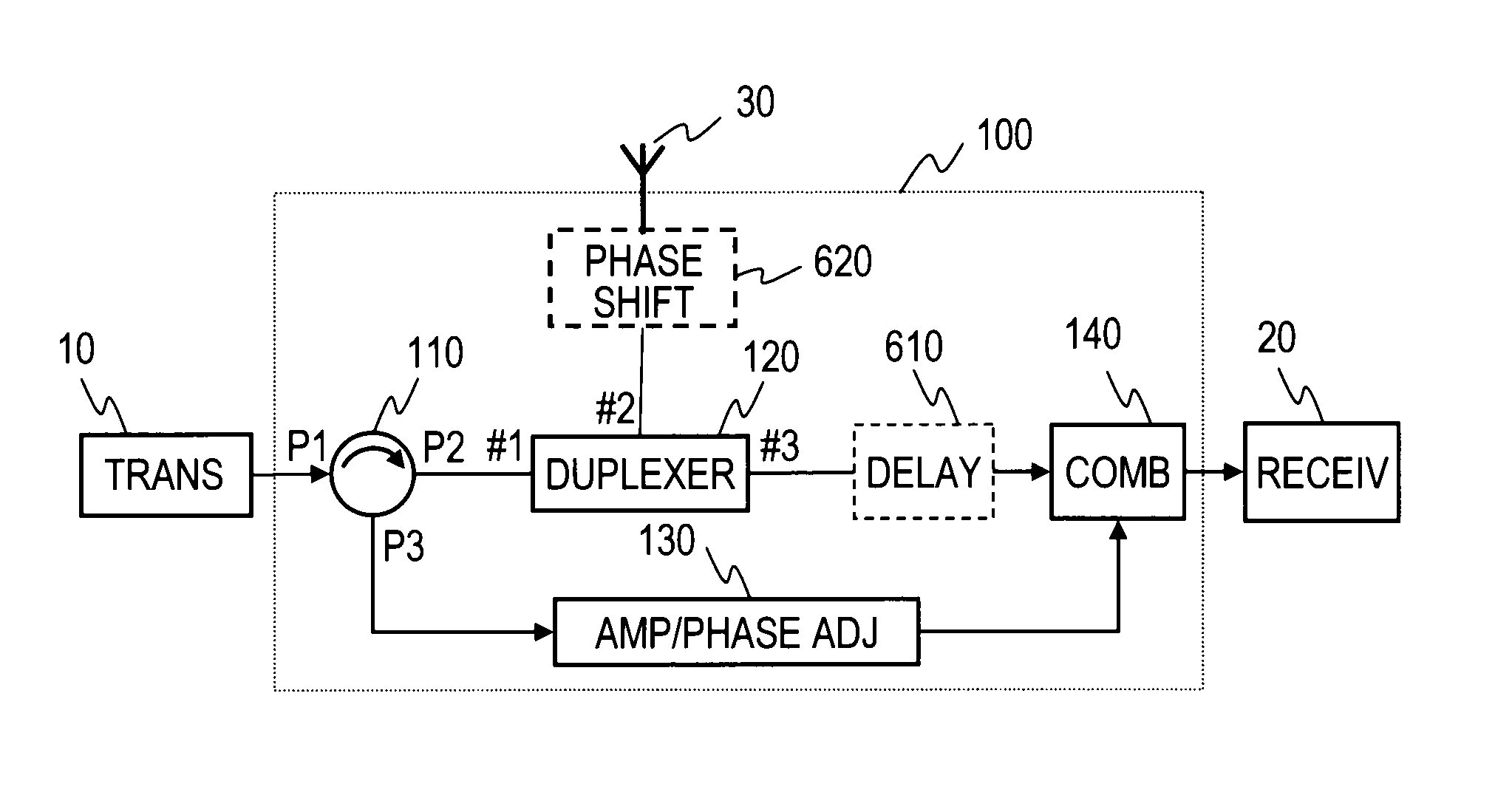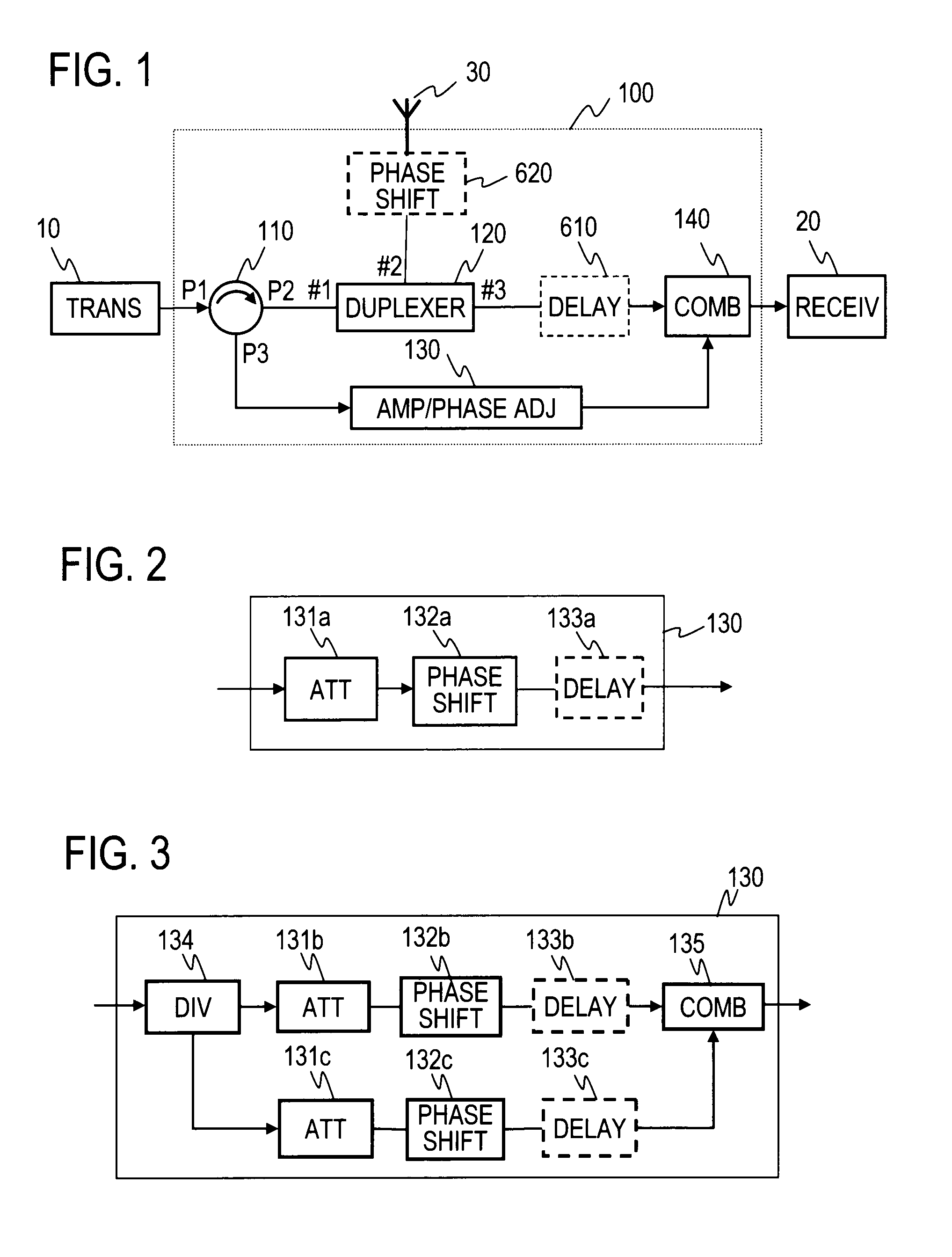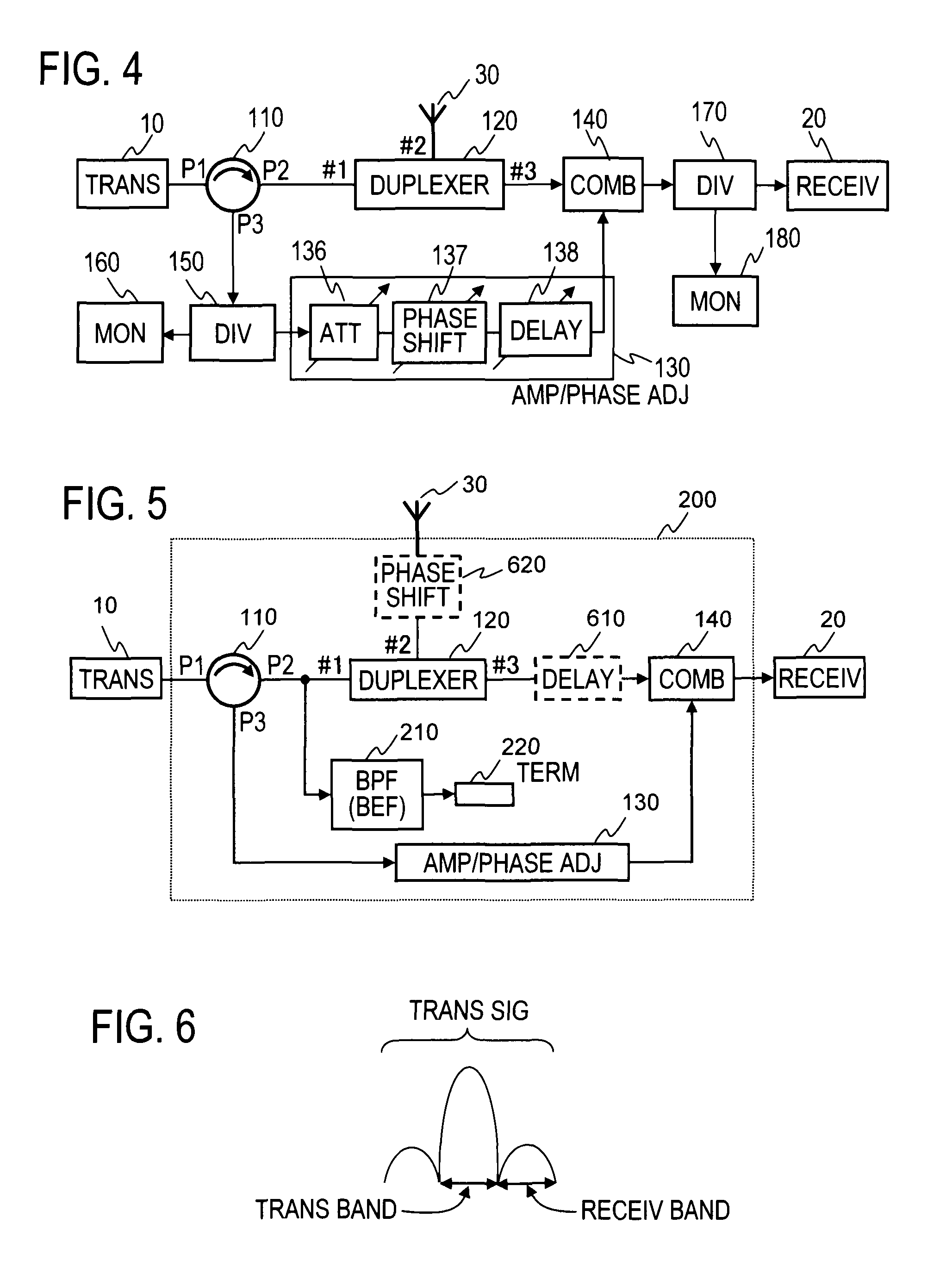Leakage power reduction apparatus
a technology of leakage power and reduction apparatus, which is applied in the direction of electrical equipment, radio transmission, transmission control/equalization, etc., can solve the problems of small part of the reflected power distortion in the lna, power of the transmission signal leakage to the receiver side, etc., and achieve the effect of suppressing the leakage power and not lowering the power utilization efficiency
- Summary
- Abstract
- Description
- Claims
- Application Information
AI Technical Summary
Benefits of technology
Problems solved by technology
Method used
Image
Examples
first embodiment
[0039]FIG. 1 shows a functional block diagram of a leakage power reduction apparatus 100 of the present invention. FIG. 11 is a flow chart of the corresponding processing.
[0040]The leakage power reduction apparatus 100 of the present invention includes a circulator 110, a duplexer 120, an amplitude-and-phase adjuster 130, and a combiner 140. The circulator 110 and the duplexer 120 are the same as those included in the structure described earlier with reference to FIG. 14. The combiner 140 is the same as that included in the apparatus described earlier with reference to FIG. 16.
[0041]The amplitude-and-phase adjuster 130 is connected to a third port P3 of the circulator 110, generates an offset signal by adjusting the amplitude and phase of a signal input from the circulator 110, and gives the generated signal to the combiner 140.
[0042]The principle of operation of the first embodiment will be described next.
[0043]A transmission signal coming from a transmitter 10 passes through the c...
second embodiment
[0052]FIG. 5 is a functional block diagram showing an example structure of a leakage power reduction apparatus 200 of a second embodiment of the present invention.
[0053]The transmission signal from the transmitter 10 is usually a modulation signal and generally contains not only a component of the transmission frequency band but a component of the reception frequency band as distortion, as shown in FIG. 6. If the transmission signal contains a reception frequency band component, the structure of the first embodiment can prevent a transmission frequency band component of the transmission signal from leaking to the side of the receiver 20, as described earlier. However, a large part of the power of the reception frequency band component of the transmission signal input to the first terminal #1 of the duplexer 120 is rejected by the transmission band-pass filter 121 (see FIG. 15) in the duplexer 120. If the rejected signal passes through the circulator 110, the amplitude-and-phase adju...
third embodiment
[0058]FIG. 7 is a functional block diagram showing an example structure of a leakage power reduction apparatus 300 of a third embodiment of the present invention.
[0059]The third embodiment is structured by disposing an attenuator 310 and a reflector 320 instead of the terminator 220 in the structure of the second embodiment shown in FIG. 5. A circulator 110, a duplexer 120, an amplitude-and-phase adjuster 130, a combiner 140, and a reception band-pass filter 210 (BPF) have the same function as those corresponding elements used in the second embodiment.
[0060]The attenuator 310 is connected between the reception band-pass filter 210 (BPF) and the reflector 320 and attenuates the amplitude of an input signal. The reflector 320 is a transmission line having a certain length with an open end or a short-circuited end and reflects a signal input from the attenuator 310 back to the attenuator 310 again, adding a predetermined phase difference.
[0061]Most of the power of the reception frequen...
PUM
 Login to View More
Login to View More Abstract
Description
Claims
Application Information
 Login to View More
Login to View More - R&D
- Intellectual Property
- Life Sciences
- Materials
- Tech Scout
- Unparalleled Data Quality
- Higher Quality Content
- 60% Fewer Hallucinations
Browse by: Latest US Patents, China's latest patents, Technical Efficacy Thesaurus, Application Domain, Technology Topic, Popular Technical Reports.
© 2025 PatSnap. All rights reserved.Legal|Privacy policy|Modern Slavery Act Transparency Statement|Sitemap|About US| Contact US: help@patsnap.com



